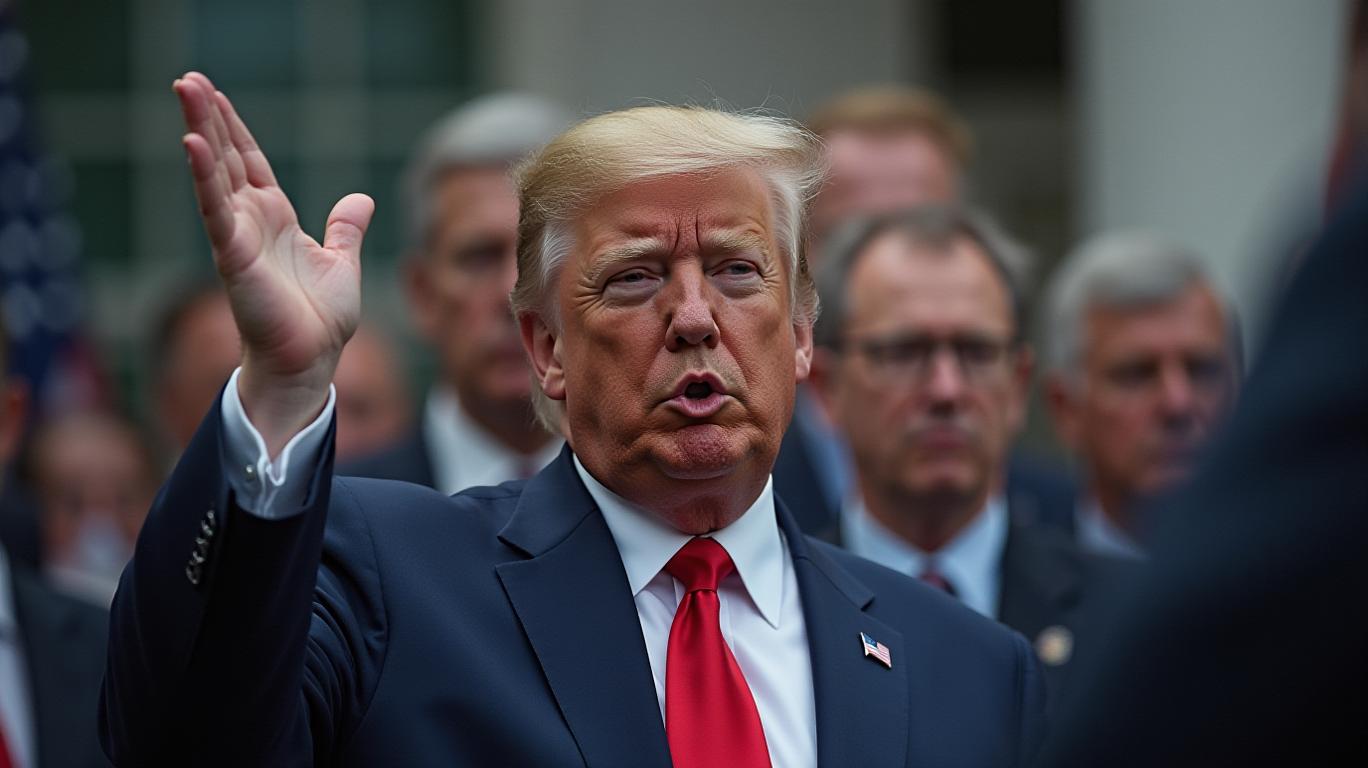US Set to Implement Reciprocal Tariffs on April 2, Impact on Equities Unclear
On April 2, the United States is set to implement sweeping reciprocal tariffs, an event dubbed "Liberation Day" by President Donald Trump. This move is anticipated to have significant implications for US equities and economic growth. The stock market has historically shown mixed reactions to the implementation of tariffs, and this upcoming announcement is expected to impact the market, though it may not bring the certainty that investors are hoping for.
The tariff announcements could potentially free markets from the current uncertainties surrounding US trade policy. However, the outcome is far from guaranteed. For the best-case scenario to materialize, several conditions must align perfectly. Firstly, the countries targeted by these tariffs must refrain from retaliatory measures, which could otherwise nullify the intended benefits of an America First platform. Secondly, the rollout of these tariffs must be smooth, avoiding the chaos and disruptions that often accompany such policy changes. Additionally, the tariffs and any subsequent retaliatory measures must boost growth rather than causing economic disruptions for businesses and consumers.
Businesses will need to adapt to the reshaped international trade landscape, while consumers will have to be patient and willing to make sacrifices. The White House has asserted that the price increases resulting from tariffs will be temporary, but this assumption is risky given the current economic climate and consumer sentiment. The Federal Reserve will also face a challenging situation. If the Fed cuts rates to stimulate growth, it risks driving up inflation, and these rate cuts would be seen as a monetary rescue mission rather than a gradual easing.
The success of "Liberation Day" hinges on a series of favorable outcomes, including a boost in sentiment, growth, and earnings. However, many economists and analysts have noted that while the upside may be limited, the downside risks are substantial. The implementation of wide-ranging levies on foreign goods could potentially tip the US into a recession, according to experts. They point to the risks of a slowdown for businesses already grappling with economic uncertainties.
Investors are closely watching for specific details on the steepness of the levies and the overall impact on the economy. The upcoming tariff announcements are likely to influence market sentiment and could lead to significant shifts in US equities. The outcome of "Liberation Day" will depend on how well the administration navigates the complexities of trade policy and the potential repercussions from other nations.

Quickly understand the history and background of various well-known coins
Latest Articles
Stay ahead of the market.
Get curated U.S. market news, insights and key dates delivered to your inbox.



Comments
No comments yet